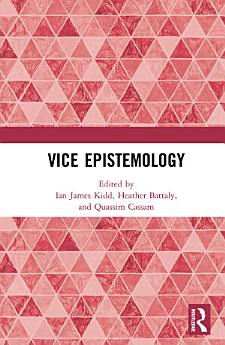Vice Epistemology
เกี่ยวกับ eBook เล่มนี้
This book seeks to answer these important questions about the vices of the mind and their roles in our social and epistemic lives, and is the first collection of its kind. Organized into three parts, chapters by outstanding scholars explore the nature of epistemic vices, specific examples of these vices, and case studies in applied vice epistemology, including education and politics.
Alongside these foundational questions, the volume offers sophisticated accounts of vices both new and familiar. These include epistemic arrogance and servility, epistemic injustice, epistemic snobbishness, conspiratorial thinking, procrastination, and forms of closed-mindedness.
Vice Epistemology is essential reading for students of ethics, epistemology, and virtue theory, and various areas of applied, feminist, and social philosophy. It will also be of interest to practitioners, scholars, and activists in politics, law, and education.
เกี่ยวกับผู้แต่ง
Ian James Kidd is an Assistant Professor of Philosophy at the University of Nottingham, UK.
Heather Battaly is a Professor of Philosophy at the University of Connecticut, USA.
Quassim Cassam is a Professor of Philosophy at the University of Warwick, UK.





